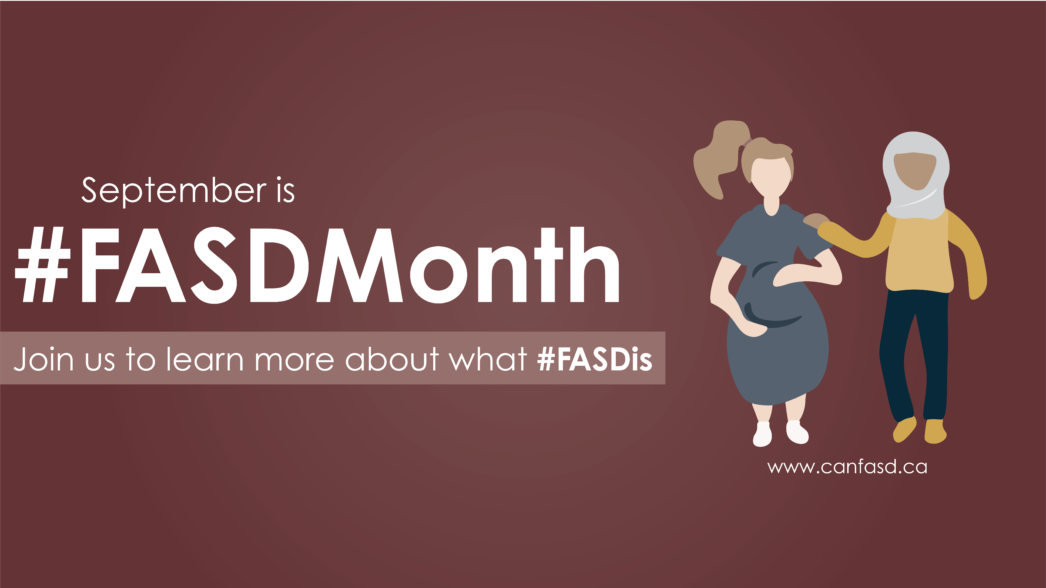September is Fetal Alcohol Spectrum Disorder (FASD) Awareness Month, dedicated to improving our knowledge and understanding about this disability.
CanFASD’s vision is for all Canadians to be engaged and united with awareness, evidence, and knowledge, and are effectively addressing the complexities of FASD.
Historically, there has been a lot of misinformation and stigma about FASD. This stigma has contributed to negative stereotypes about people with FASD, birth mothers, and families of people with FASD. Raising awareness of FASD in Canada can help us to overcome stigma and stereotypes and improve supports and services to address FASD.
There are three things we want everyone to take away from FASD Month:
1. FASD stands for Fetal Alcohol Spectrum Disorder
Firstly, we want to encourage Canadians to become FASD-informed. This action means making sure everyone has an accurate understanding of what fetal alcohol spectrum disorder is, and uses up-to-date, evidence-based facts about this disability.
You can become more FASD-informed by:
- Using our standard definition of FASD
- Taking the Foundations in FASD online course
- Staying up-to-date on recent information about FASD
2. How we talk about FASD changes how we think about FASD
Secondly, we want people to understand that the language we use to talk about FASD, alcohol, and pregnancy shapes how we see these topics. Women who use alcohol during pregnancy are heavily stigmatized, as are people with FASD. Changing to language that doesn’t perpetuate stigma can help reduce or eliminate commonly held misconceptions and stereotypes.
Shift to using strengths-based, person-centred language when talking about FASD, alcohol, and pregnancy. Use images and videos that are respectful and inclusive. Politely correct someone when they share incorrect information or use language that is disrespectful.
You can change your language by:
- Using our common message guidelines for talking and writing about FASD
- Using images, graphics, and videos that promote dignity
- Become more FASD-informed (see #1)
3. We are real people and we each have our story to tell
Thirdly, we want Canadians to listen to the voices of people within the FASD community. People with FASD are more than their diagnosis.
Each individual is unique and has unique experiences. By uplifting the voices of those with lived experience, we can better understand their strengths and challenges and identify areas where we can offer supports. Centring their voices in this conversation also helps to promote dignity and encourage collaboration.
You can learn from the FASD community by:
- Reading about their experiences on CanFASD Connect
- Listening to the FASD Success Show podcast
- Connecting with your local FASD organization

